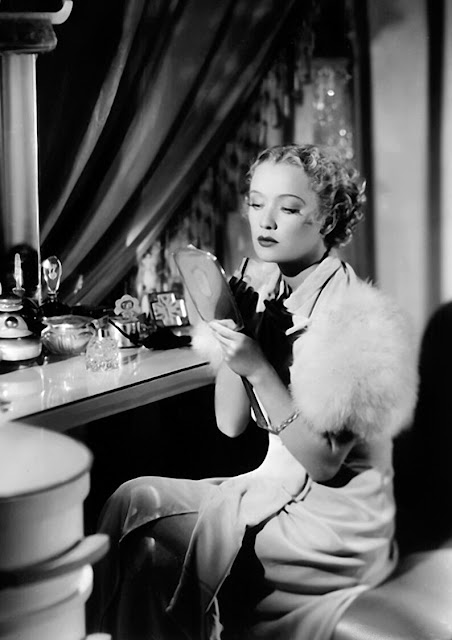Kim Stanley on Marlon Brando: Dedicated to the Truth
Kim Stanley was tough and funny and maddeningly precise. Telephone conversations would always entail laughter and insight, but they would often turn into depositions, because Kim needed to know every detail of every situation, anecdote, implication. My first phone calls to Kim were in 1990, then we grew apart for a time, with the calls resuming in the aftermath of what she called the "Rodney King response" in 1992. The riots were near her home, and she was worried that she might have to evacuate, and she was watching the actor Edward James Olmos try to calm the nerves of the citizens of Los Angeles. "I can do no more," she said mordantly, "so we might as well talk about the theatre." And we did.
I shared with her the comments made by Marlon Brando about her talent and their relationship. (They have already been posted on this site http://jamesgrissom.blogspot.com/2012/08/brando-on-kim-stanley-dangerously.html).
Kim was stunned and delighted by the comments. Here is her response, as it happened, and as I wrote it down, although it should be noted that Kim, in her fashion, called me twice to amend some of her statements. Her changes in no way altered the honesty or insight of her comments; they only cleaned up her grammar, which she confessed was shaky when she was moved.
Marlon Brando is one of the reasons--if not the primary reason--that I believed in the theatre. He is certainly the reason I believed that I could have a career when I did and as I did, because I could recognize, even in plays that were not terribly good or terribly well directed, that he was a brilliant, intuitive actor, dedicated to the truth of whatever character he was playing. Marlon and others like to talk about actors being well-served, but a good actor--and Marlon was a great actor--are well-served whenever they are allowed to act, to utilize their imaginations and their intellect, and Marlon always did. You never saw the strenuous act of creating as he did, but you saw the effects of his great efforts. He was so vivid and alive and real, on top of being so marvelously assured in his body, so beautiful to look at. He was so complete as an actor.
Yes, neither of us had any self-control. Yes, we both had a mission--tertiary, I would argue--to destroy ourselves. I've been in therapy a lot and I've thought about it a lot--from Freud to Buber--and I cannot tell you why I cannot face situations well or tolerate what falls beneath my standards. I am not proud of it, for the most part, but I am terribly proud of it when the work is good.
Kim Stanley as Cherie in William Inge's Bus Stop (1955).
Work is only rarely good, much less great, and everything has to be at its highest level. This is why I feel it is okay to become terribly angry with your fellow players when they are not operating at a level--of skill, passion, intellect--that the play deserves. Trust me, my dear, it is rare that everyone is up to speed, and this always enraged me, and there is no way to salvage the effects of their neglect. I was guilty of many things, primarily my inability to rise above the poor efforts of bad actors: I reacted to them as much, if not more, than I adhered to the text and the character. Of that I'm guilty. I also could not maintain the standards I required when I had lost my foundation, as Tennessee put it in one of the pieces you sent me. You have to have the foundation, and once you begin to fake things, to manufacture things absent in the play, you are no longer real, no longer good, no longer worthy of being on the stage.
As God is my witness, I only wanted to be real and honest. I never tried to be anything else.
There is a lot of criticism of the Method, and some of it is valid. Many of us lost our way. The Studio lost its way. We lost sight of the very thing most of us wanted, which was to be artists, to be real, to work well. Other things became important: stardom and power and effect based on something other than artistic achievement. There probably was corruption in the palace, but I was as much a part of that corruption as others Marlon came to hate. I'm not saying he isn't right to have hated them, but he needs to know who did what and assign the blame fairly.
Marlon may be right: There may only be a particular and small period of time in which you can do your best work. It is certainly true that I was in no condition to continue acting. I no longer had the necessary tools. So you teach or you direct or you write or you try, as gracefully as possible, to retreat and recast your life.
Marlon is right on so many things, and I'm glad he liked my work. I adored his work, and I adored the man. I think it's time we had a reunion.
Authors Note: I know that Kim made several attempts to call or to meet with Marlon Brando, but I do not know if they ever re-connected.





Comments
Post a Comment
Thank you for your comments. The moderators will try to respond to you within 24 hours.